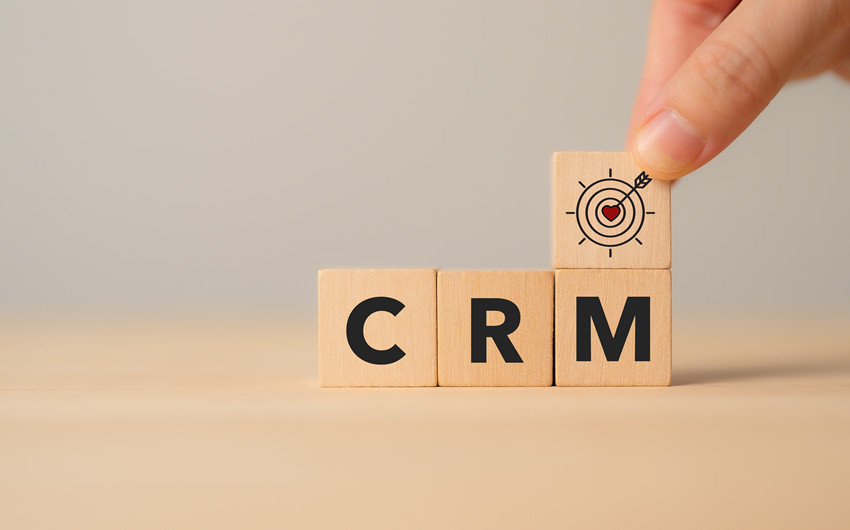6 Real-World Customer Relationship Management Examples
In today’s business world, building strong relationships with customers is key to long-term success. Whether you’re running a small business or a large corporation, understanding how to manage those relationships can make all the difference. That’s where customer relationship management (CRM) comes in.
From personalized emails to organized sales pipelines, CRM systems help businesses connect with their customers in meaningful ways. In this article, we’ll explore customer relationship management examples that show how different companies use these tools to boost customer satisfaction and drive growth.
What is Customer Relationship Management (CRM)?
Customer Relationship Management (CRM) is a strategy used by businesses to manage interactions with current and potential customers. At its core, CRM involves using technology to organize, automate, and synchronize various aspects of customer interaction—such as sales, marketing, customer service, and support. The goal is simple: to build stronger relationships, improve customer retention, and ultimately drive business growth.
CRM systems store detailed customer information like purchase history, communication records, and personal preferences. This centralized data allows businesses to tailor their approach to each customer, creating more personalized experiences. Customer service departments can also benefit by having quick access to all past interactions, enabling faster and more accurate responses.
Why is CRM Important for Businesses?

Image source: Pinterest
Customer Relationship Management (CRM) is essential for businesses of all sizes because it helps create meaningful, long-lasting connections with customers. In a world where consumers have countless choices, maintaining strong relationships can be a key differentiator. Here’s why CRM is so crucial for businesses:
1. Improved Customer Retention
One of the primary benefits of CRM is its ability to keep customers coming back. By tracking interactions and preferences, businesses can offer personalized experiences that make customers feel valued.
This level of attention increases loyalty, reducing the likelihood of customers switching to a competitor. For example, if a customer had an issue with a product in the past, CRM systems can remind the business to follow up and ensure the problem was resolved to their satisfaction.
2. Enhanced Communication and Customer Service
CRM systems allow businesses to streamline communication across multiple channels, whether it’s through email, phone, social media, or live chat. Having a centralized hub for customer data ensures that everyone on the team has access to up-to-date information, so customers don’t have to repeat themselves.
This makes for a more seamless experience, helping businesses address issues faster and with greater accuracy, leading to happier customers.
3. Data-Driven Insights for Better Decision-Making
CRM systems provide businesses with valuable insights into customer behavior through data collection and analytics. By analyzing this data, businesses can identify trends, such as which products are most popular, which customers are most profitable, or which marketing campaigns are driving the most engagement.
These insights empower businesses to make smarter, data-driven decisions, helping them focus on what works and adjust strategies accordingly.
4. Increased Sales Efficiency
CRM tools help sales teams stay organized by tracking leads, managing follow-ups, and keeping tabs on the sales pipeline. This organization reduces the risk of missed opportunities by ensuring that sales representatives follow up on potential deals in a timely manner.
With CRM, businesses can automate certain aspects of the sales process, such as sending follow-up emails or setting reminders for important calls, freeing up time for sales teams to focus on closing deals.
5. Targeted Marketing Efforts
CRM systems allow businesses to create more effective marketing campaigns by segmenting customers based on their behaviors, preferences, and purchasing history.
This targeting ensures that customers receive messages and promotions that are relevant to them, increasing the likelihood of engagement. For example, if a customer consistently buys a particular product, the business can send them personalized recommendations or special offers on related items, making the marketing feel more tailored.
Examples of Effective CRM in Action

Image source: Pinterest
To see the true power of Customer Relationship Management (CRM), it helps to look at real-world examples of how businesses use CRM systems to streamline operations, enhance customer satisfaction, and drive growth. Let’s explore some of the most well-known CRM platforms and how they are effectively utilized by businesses.
1. Salesforce
Salesforce is one of the leading CRM platforms, trusted by businesses of all sizes across various industries. Its robust set of features allows companies to manage customer interactions, track sales, and even predict future customer needs. Salesforce excels in organizing customer data, enabling businesses to deliver highly personalized services.
Example in Action:
Imagine a retail business that sells both online and in-store. By using Salesforce, they can integrate customer data from both sales channels into a single system.
This means that if a customer buys something online, the in-store sales team can easily access this information, ensuring a smooth experience regardless of where the purchase took place. Moreover, the system helps sales reps follow up on customer inquiries, send tailored promotions, and track the entire customer journey from lead to loyalty.
Benefits:
- Centralized customer data for a holistic view.
- Enhanced customer experience with personalized interactions.
- Better lead tracking and follow-up processes.
2. HubSpot
HubSpot CRM is well-known for its user-friendly interface and its ability to integrate seamlessly with marketing automation tools. This makes it especially popular among small and medium-sized businesses that are looking to streamline their marketing, sales, and customer service efforts.
Example in Action:
Let’s say you run a startup that primarily interacts with potential customers through online marketing. HubSpot allows you to capture leads from your website, automate follow-up emails, and track how visitors are engaging with your content.
As these leads move through the sales funnel, the system automatically scores them based on their behavior, so your sales team knows which leads to prioritize. With HubSpot, businesses can also send personalized email campaigns, providing customers with relevant content based on their interests.
Benefits:
- Automation of marketing efforts, saving time and resources.
- Lead scoring to prioritize high-potential prospects.
- Easy tracking of customer engagement with marketing materials.
3. Zoho CRM
Zoho CRM is often praised for its affordability and extensive customization options, making it ideal for small businesses. Its features include contact management, lead generation, and sales pipeline management, all of which are crucial for businesses looking to grow without overspending on tech solutions.
Example in Action:
Consider a small B2B company that provides IT services. By using Zoho CRM, they can manage their client relationships, track ongoing service contracts, and follow up with leads generated through networking events.
Zoho also allows for automation of routine tasks like sending out monthly service reminders or tracking invoice payments, helping the company operate more efficiently without a large administrative team.
Benefits:
- Cost-effective for small and growing businesses.
- Highly customizable to suit specific business needs.
- Automation features that reduce manual workload.
Industry-Specific CRM Examples

Image source: Pinterest
While general-purpose CRMs like Salesforce, HubSpot, and Zoho are versatile, many industries benefit from specialized CRM systems tailored to their unique needs.
1. Retail: Shopify CRM
Example in Action:
Shopify CRM allows e-commerce businesses to manage customer interactions from one centralized platform. For instance, a clothing brand can use Shopify CRM to track customer purchases, offer personalized recommendations based on shopping habits, and handle returns seamlessly.
The CRM also integrates with email marketing tools to help businesses stay connected with their customers through personalized promotions and special offers.
Benefits:
- Improves customer retention through personalized shopping experiences.
- Centralized data from both online and offline sales.
- Streamlined return and exchange processes.
2. Healthcare: Pipedrive CRM
Example in Action:
Healthcare providers use Pipedrive CRM to manage patient relationships and ensure timely follow-ups. For example, a clinic can track patient appointments, send reminders for upcoming checkups, and follow up after treatments.
Pipedrive helps healthcare organizations stay organized by keeping patient records, appointment histories, and communication logs in one place, reducing administrative errors and improving patient care.
Benefits:
- Enhances patient engagement and retention.
- Streamlines appointment scheduling and follow-ups.
- Improves organization of patient data for more efficient care.
3. Real Estate: Freshsales CRM
Example in Action:
Real estate agents benefit from Freshsales CRM by using it to manage their client base, organize property listings, and track deals. For instance, an agent can use Freshsales to follow up on leads generated through property viewings, schedule house tours, and automate emails about new listings.
Freshsales also allows agents to keep track of contract stages and closing dates, ensuring that no detail is overlooked in the sales process.
Benefits:
- Simplifies lead and deal management for real estate agents.
- Automates follow-up processes, increasing efficiency.
- Tracks deals and transactions to ensure smooth closings.







